"In order to change the future, first of all you have to design minds," says Ilse Crawford
Designers have to act as "catalysts of change" and look beyond the status quo when specifying materials, said a panel of experts at a talk hosted by Dezeen in collaboration with Bentley during Milan design week.
Titled Rethinking Luxury Materials, the event was the first in a series of panel discussions hosted by Dezeen and Bentley called Lighthouse Talks, which will explore the future of luxury.
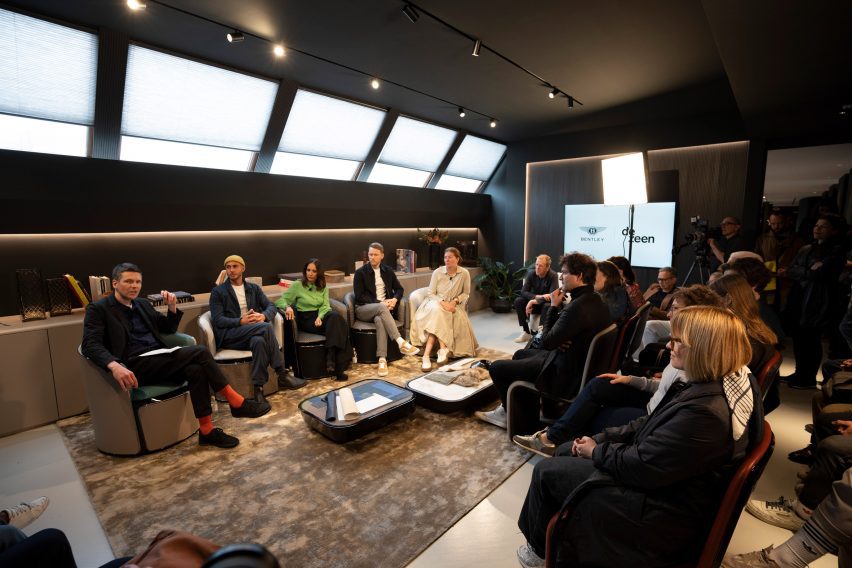
Led by Dezeen's editorial director Max Fraser, panelists included head of Bentley design collaborations Chris Cooke, art creative director at Bentley Home Monique Zappalà, designer and founder of Studioilse Ilse Crawford and designer Maurizio Montalti, who is chairman and co-founder of Sqim, Ephea and Mogu.
Held at the Bentley Home atelier in Milan, there talk addressed the static nature of the luxury market and questioned its continued focus on environmentally harmful materials such as rare woods, precious metals, sumptuous leathers and fine silks.
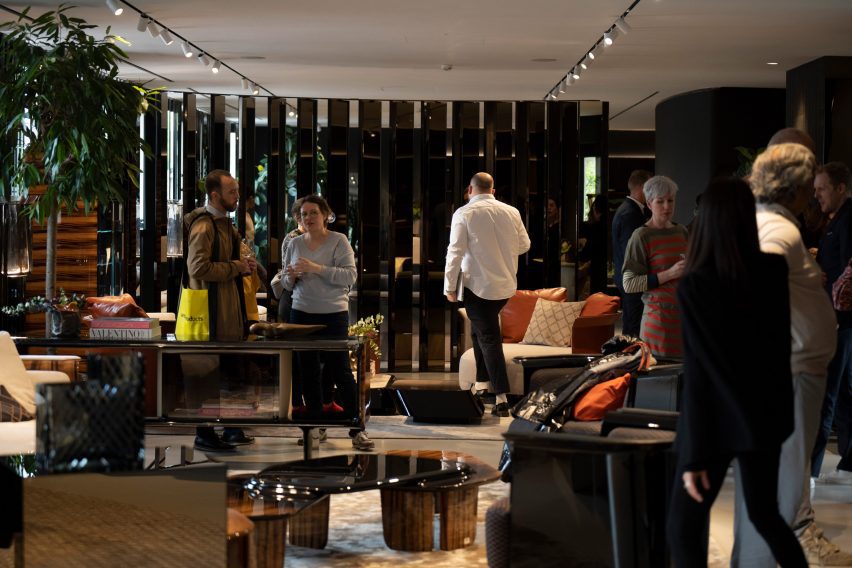
As people become increasingly concerned with the environmental impact of their lifestyles, the panel discussed ways in which luxury brands can align their use of materials with the values of customers.
Crawford commented that "in order to change the future, first of all, you have to design minds".
Elaborating on this point later she continued: "We talk about noble materials, but every material is noble, all materials can be beautiful if they are looked at differently; if they are touched by the hand – it's what we do with them that makes the difference."
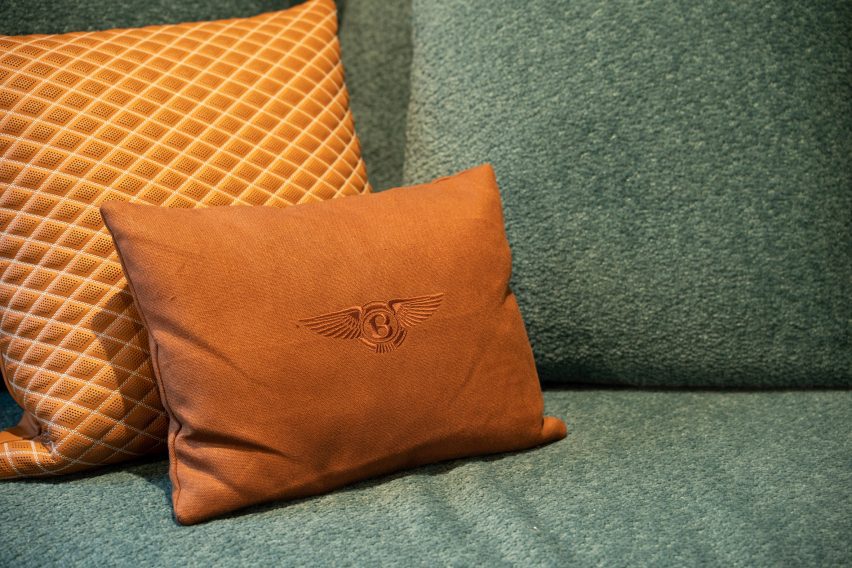
The panelists agreed that getting consumers and brands to let go of ideas of perfection and get comfortable with the idea that "things do age" is a key component to redefining luxury.
"If you ask me, particularly from a design perspective, the value lies in imperfection," said Montalti, whose company, Mogu, is focussed on scaling up the use of mycelium-based technology, materials and products.
"The value of every single piece being consistent in terms of technical and experiential properties, but unique in its appearance."
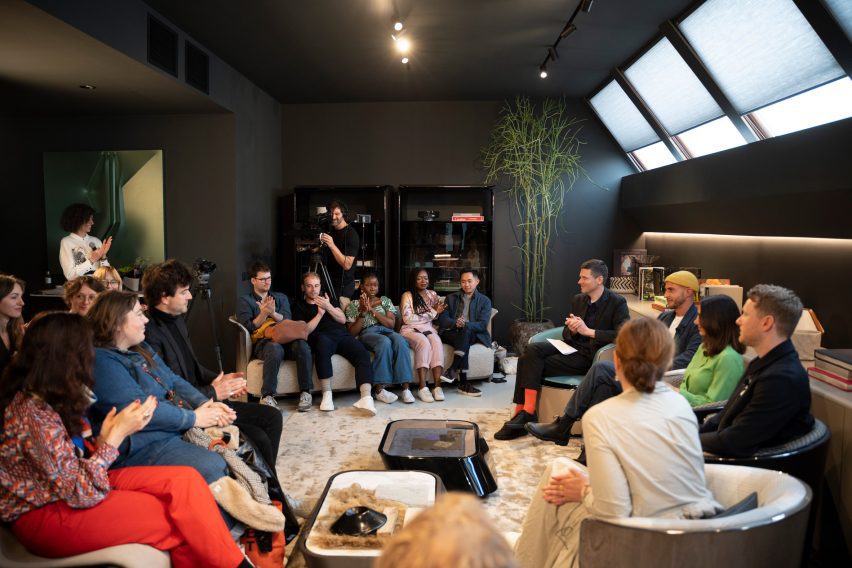
Discussing issues of longevity and durability and the stringent health and safety testing that new materials have to undergo before they are introduced into the design of a car, Cooke spoke of the advantages of Bentley operating as a lifestyle brand.
"We have the ability to work outside of automotive which gives us the creative space to start investigating these amazing materials and steadily bring them back into the car, perhaps we can lead the automotive industry on some of the things that we're creating," he said.
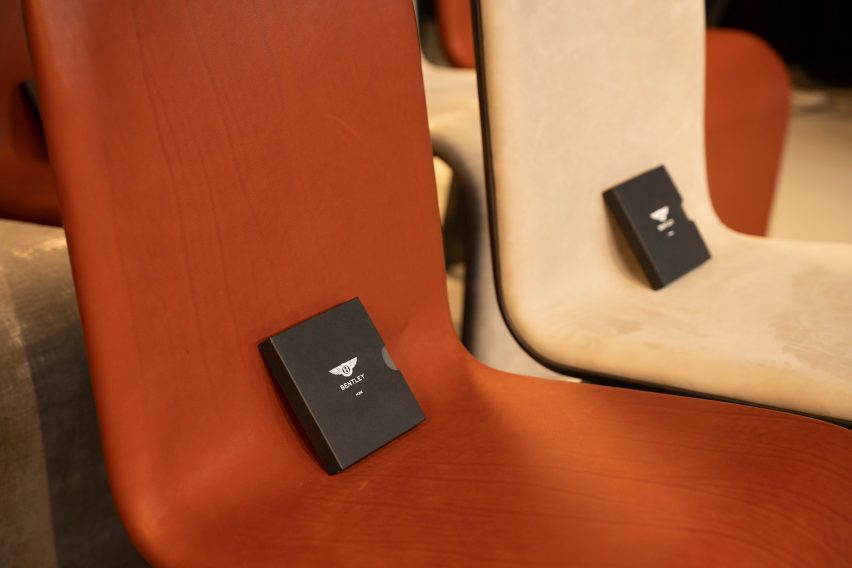
At the talk, audience members were provided with a sample of a new "paper marble" material that was handmade using cellulose fibres sourced from "sustainable production chains" as diverse as jeans, chocolate and wine.
Produced by a company called Paper Factor, the solid surface material has a stone-like appearance but a soft paper-like feel. Bentley used the material to create a table for its Bentley Home collection and said it will be using the material more widely going forward.
The discussion also touched upon the importance of understanding a material's complete lifecycle in order to deduce whether it is truly sustainable. Panellists cited the harmful chemicals that are used in the tanning process of "natural" materials like leather and the complexities of recycling plant-based plastics.
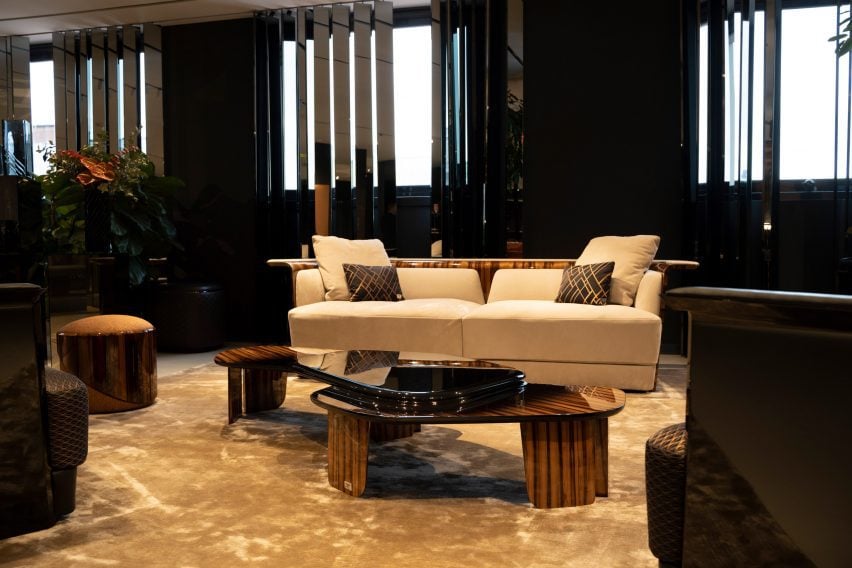
Montalti described how we need to go "beyond circular" and even "beyond regenerative" towards a "metabolic" design system where a material completely transforms itself during its lifecycle so that it can be fed back into the system as nutrients to allow for regeneration.
"It is a shared responsibility," he explained. "And that's where I think designers play a pivotal role as catalysts of change, we are able to show exactly how to do things better."
Partnership content
This video was produced by Dezeen as part of a partnership with Bentley. Find out more about Dezeen partnership content here.